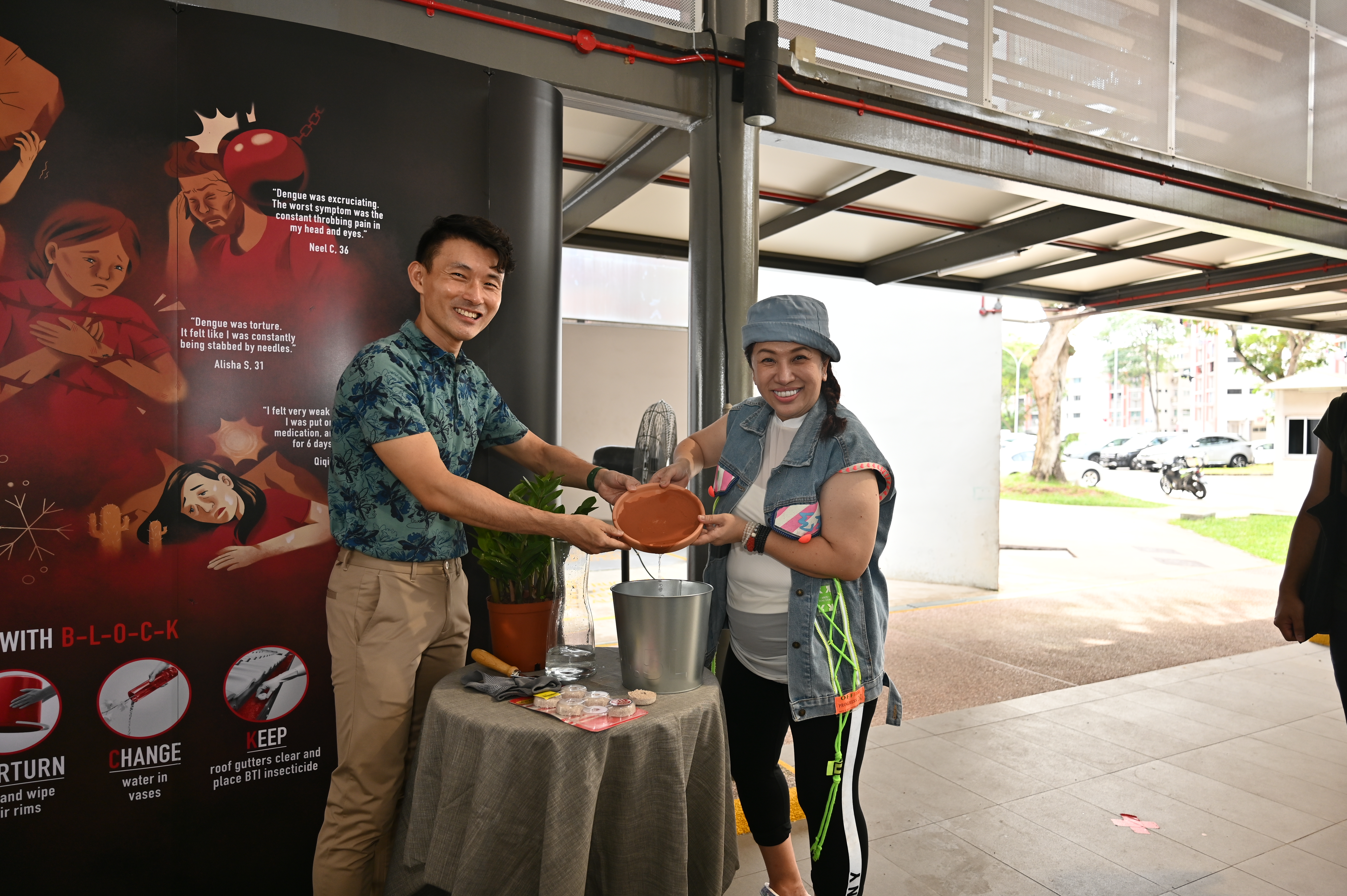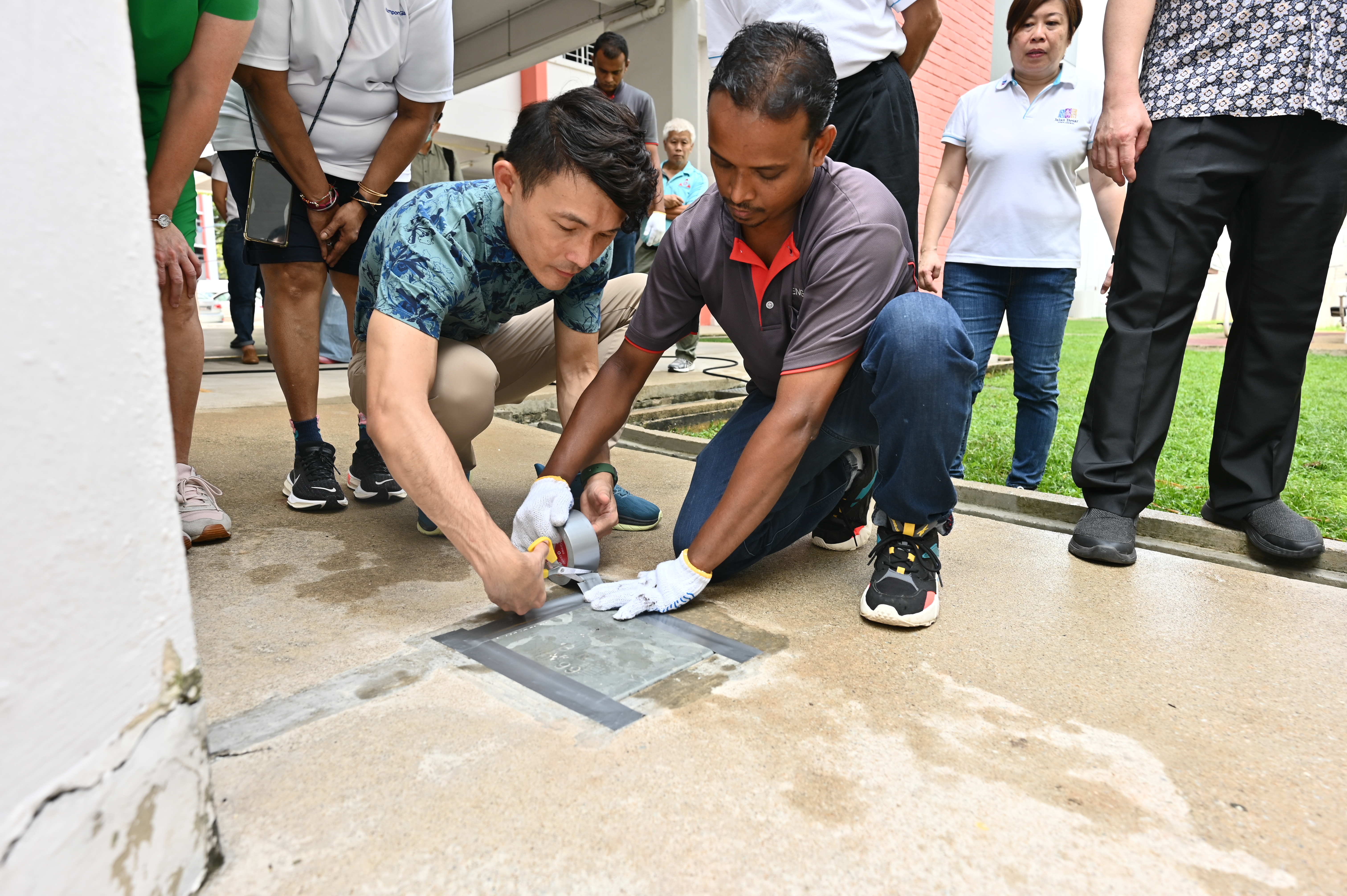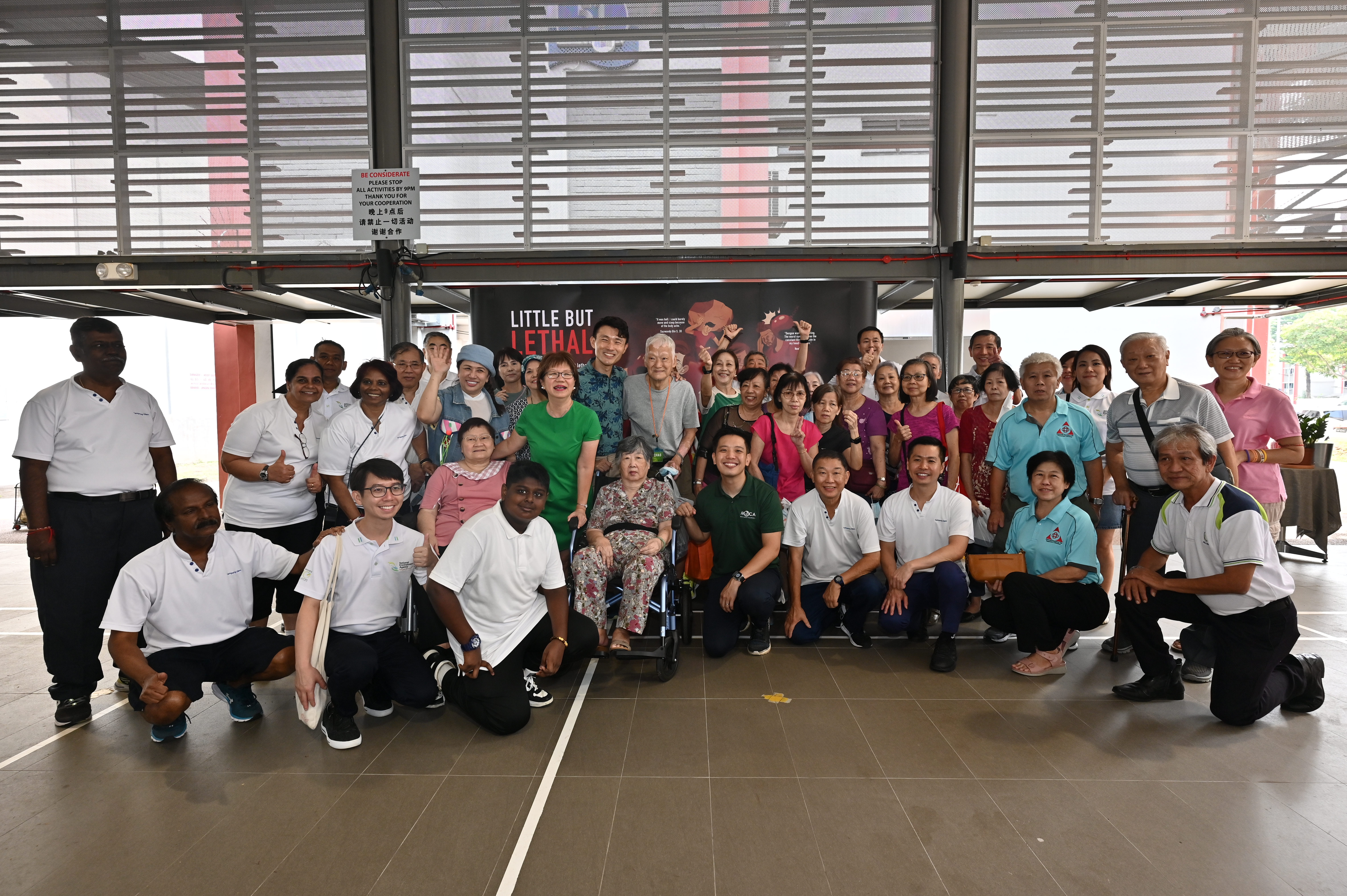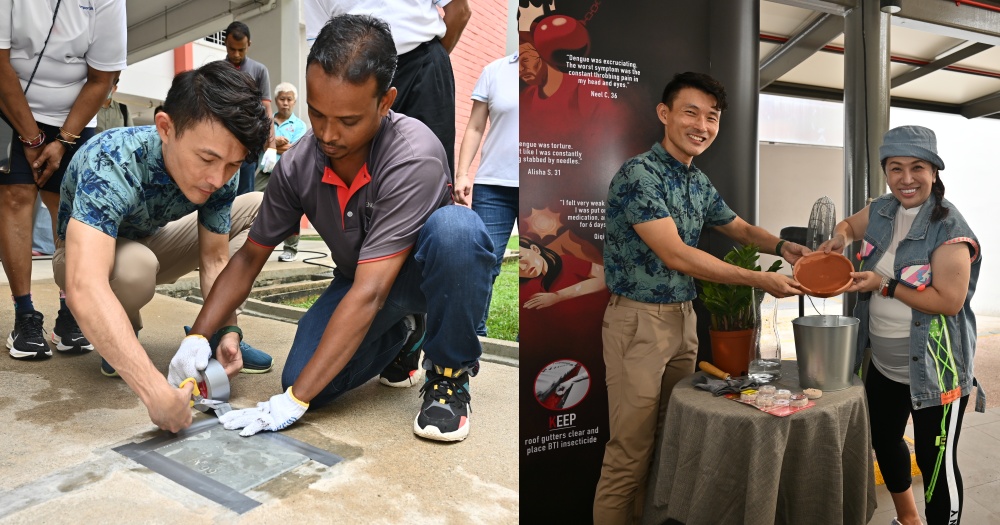Follow us on Telegram for the latest updates: https://t.me/mothershipsg
The National Environment Agency (NEA) has launched its annual National Dengue Prevention Campaign ahead of the traditional peak dengue season from June to October.
Campaign launch attended by Baey Yam Keng
According to NEA, the campaign aims to rally the community to take immediate action to reduce the number of dengue cases by highlighting areas that are at higher risk, as well as the health consequences of dengue.
Senior Parliamentary Secretary for Sustainability and the Environment Baey Yam Keng attended the campaign launch at Kampong Glam constituency on Saturday (Mar. 25).
Baey shared the dengue outlook for 2023, and called for intensive and concerted community effort to prevent mosquito breeding.
He urged members of the public and all stakeholders to take urgent collective action to reduce mosquito breeding habitats in the fight against dengue, so that the country can avert another major dengue outbreak this year.
At the event, Baey also toured the "Little but Lethal" dengue art exhibit on severe dengue symptoms, HDB common areas, a neighbouring construction site, and several shophouses.
 Image via NEA.
Image via NEA.
 Image via NEA.
Image via NEA.
 Image via NEA.
Image via NEA.
 Image via NEA.
Image via NEA.
 Image via NEA.
Image via NEA.
More dengue cases expected in 2023
According to NEA, the weekly dengue cases since the beginning of 2023 have remained above 100.
A contributing factor to the "relatively high weekly baseline" is the high Aedes aegypti mosquito population detected in the community.
It is 16 per cent higher than what was detected during the same period in February 2022.
Another factor, said NEA, is the continued prevalence of the previously less common dengue virus serotype 3 (DENV-3), which has been detected in large dengue clusters across the island.
"Community exposure, and hence immunity, to DENV-3 is low despite this serotype being the main driver of last year's dengue outbreak," NEA said.
As of Mar. 24, 2023, over 2,000 dengue cases have been reported, and the risk of dengue transmission remains high.
There are currently 39 active dengue clusters, and DENV-3 has remained the predominant serotype since 2021.
Higher dengue transmission from June to October
NEA also said that the warmer months from June to October usually see higher dengue transmission in Singapore.
This is due to accelerated development of the Aedes mosquito vector and faster multiplication of the Dengue virus in mosquitoes.
Singapore had experienced two-year dengue outbreaks in 2013 and 2014, 2015 and 2016, as well as 2019 and 2020.
If left unchecked, the presence of key drivers for dengue transmission may lead to another dengue outbreak in 2023, warned NEA.
In 2022, a total of 32,173 dengue cases were reported. This is the second highest number of cases in a year, with the record high being 35,266 cases in 2020.
NEA also conducted about 911,000 mosquito inspections islandwide and uncovered about 23,600 mosquito breeding habitats in 2022.
At dengue cluster areas, about 66 per cent of Aedes mosquito breeding detected were in homes, 26 per cent were in public areas, and three per cent were at construction sites.
During the same period, 11,800 enforcement actions were taken against owners of premises for mosquito breeding.
About 750 fines and 129 stop work orders were issued to construction sites.
75 contractors were charged in court for repeat offences.
Everyone urged to take collective and immediate action
To complement existing dengue control efforts, NEA has released male Wolbachia-Aedes mosquitoes at eight additional sites since July 2022, bringing the total coverage to about 30 per cent of all HDB blocks and nine per cent of landed residential areas in Singapore.
NEA, however, urged everyone to maintain good housekeeping and ensure that essential vector control measures are undertaken at all premises under their responsibility to further reduce dengue case numbers.
Prevention steps
Residents, especially those residing at dengue cluster areas, are reminded to carry out the "S-A-W" actions to protect themselves and their loved ones against dengue:
- Spray insecticide in dark corners around the house.
- Apply insect repellent regularly.
- Wear long-sleeve tops and long pants.
All stakeholders should also take immediate action to suppress the Aedes mosquito population and break disease transmission by regularly practising the "B-L-O-C-K" steps:
- Break up hardened soil.
- Lift and empty flowerpot plates.
- Overturn pails and wipe their rims.
- Change water in vases.
- Keep roof gutters clear and place BTI insecticide inside.
Related story
Top images via NEA.
If you like what you read, follow us on Facebook, Instagram, Twitter and Telegram to get the latest updates.
